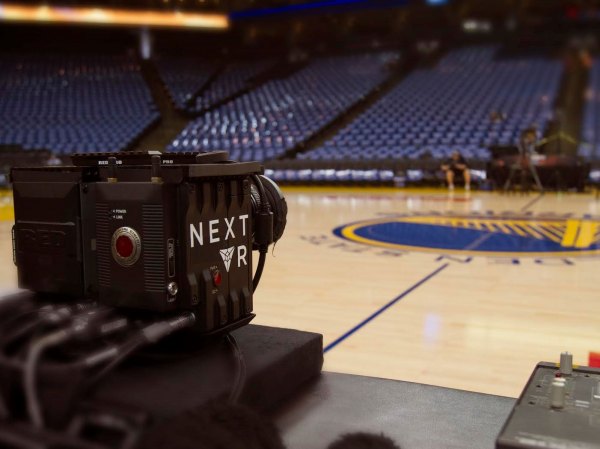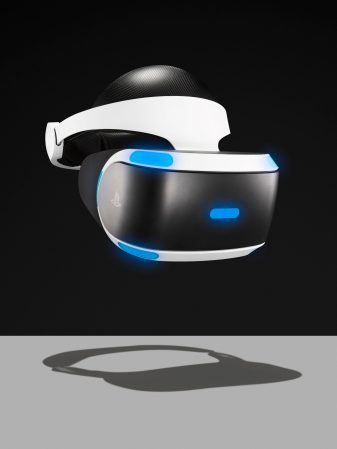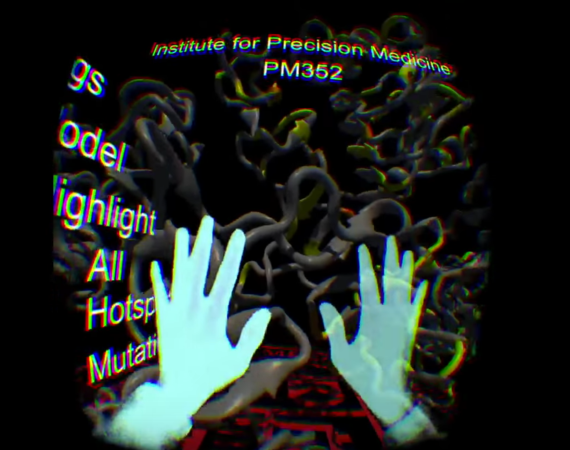


Let’s just say I’m no Mark Watney. The hero of Ridley Scott’s film The Martian knew how to survive alone on Mars after his crew left him for dead and blasted off on their journey back to Earth. Watney, an astronaut-botanist played by Matt Damon, figured out how to repair his space helmet, jury-rig a power source, build a greenhouse, and grow potatoes in sterile soil—a real Martian MacGyver.
As for me, I’m having trouble simply tossing Watney’s tubers into bins marked Large and Small. Everything in my field of vision indicates I’m in a Martian habitat. In reality, I am at the Twentieth Century Fox Innovation Lab in Los Angeles, comfortable in a leather D-Box motion-simulator chair, a game controller in each hand, an Oculus Rift on my head, breathing pleasantly air-conditioned Earth air as I test-drive The Martian VR Experience.
My POV is from Watney’s helmet as I stand in his makeshift greenhouse adjacent to the Hab, trying to grasp simulated potatoes with my simulated gloved hands. Frustrated by my fumbling, I take a moment to admire the 360-degree views of the orange and red wasteland beyond the dusty plastic walls of the greenhouse. Spectacular. Is this what humans will some day gaze upon as they slip the surly bonds of Earth and dance . . .? Hold the reverie; I’m timing out. I return to the task at hand, improving my dexterity with the smaller spuds and scattering the bigger ones all over the greenhouse while knocking over equipment on a cluttered workbench.
“Why don’t you try driving the robot?” an encouraging voice says off to my right.
“Why don’t you try driving the robot?” an encouraging voice says off to my right. It’s Clayton Biele, director of the Innovation Lab, intruding on virtual reality from actual reality to put me out of my potato misery. “Look down to your right.”
Sure enough, there’s a square, thruster-like handle that I am able to grasp. I power up a Shop-Vac-size bot and use a joystick to send the bot zooming around the greenhouse. Much more satisfying. I may have a shot at survival after all.
Fox and other major players are hoping the same can be said for VR. They’re making cautious bets that the technology has advanced to the point where the medium is ready to colonize the market. Among many unanswered questions, however, is whether gamers will find The Martian VR Experience and other such content too tame, or whether it will appeal to an entirely different audience.
The immersive 20- to 30-minute Martian VR film was directed by Robert Stromberg, the Oscar-winning production designer on Avatar and Alice in Wonderland and the director of Maleficent. A collaboration between the Fox Innovation Lab, Scott’s RSA Films, and The VR Company, it combines voice-overs and footage from the movie—gliding alongside the Hermes mother ship, approaching the Red Planet, soaring over its surface—with seven interactive scenarios, including the potato sorting and the Shop-Vac bot.
Premiered in January at CES, The Martian VR Experience operates on three tethered devices—Sony’s PlayStation VR, the HTC Vive, and the Oculus Rift. (The D-Box chair, which currently is found only in cinemas, isn’t essential to the feeling of immersion.) Fox expects to launch it in the second quarter of 2016 with downloads from VR content sites; the retail price has not been announced. Meanwhile, a teaser can be viewed on Samsung’s Gear VR.
The Martian was still in postproduction when the Fox Innovation Lab began the seven-month development of the VR version with Stromberg and 20 animators. Scott served as executive producer. “It’s a very interesting process,” he told The Hollywood Reporter at CES. “One of the tricks is getting it to a level of experience where it’s like eyesight.” Eventually, Fox plans to integrate VR content into the workflow as soon as projects with potential are added to the studio’s slate. So, Scott’s upcoming Alien: Covenant—possibly. Amy Schumer’s Mother/Daughter—probably not. The company’s TV programs and other intellectual property also beckon as fodder for mobile VR platforms.
Back on Mars, one of my biggest survival challenges is to load a pair of solar panels on the rover’s trailer as a dust storm brews to my right. “Without those panels you have no chance of survival,” the dispassionate voice on my headset warns. Thanks, no pressure. Controlling the trailer’s crane with a pair of levers, I manage to position the panels just as sand and rocks begin pelting me, and the D-Box chair starts vibrating, bucking, and shaking.
My two favorite sequences are road-tripping in the rover to Schiaparelli Crater and blasting up to the Hermes in the Mars Ascent Vehicle. I may not be able to toss space potatoes, but as I float free of the spent MAV, I have no trouble puncturing my pressurized suit and using the escaping air to maneuver into the welcoming arms of Ares III mission commander Melissa Lewis (Jessica Chastain). Homeward bound at last—virtually.







